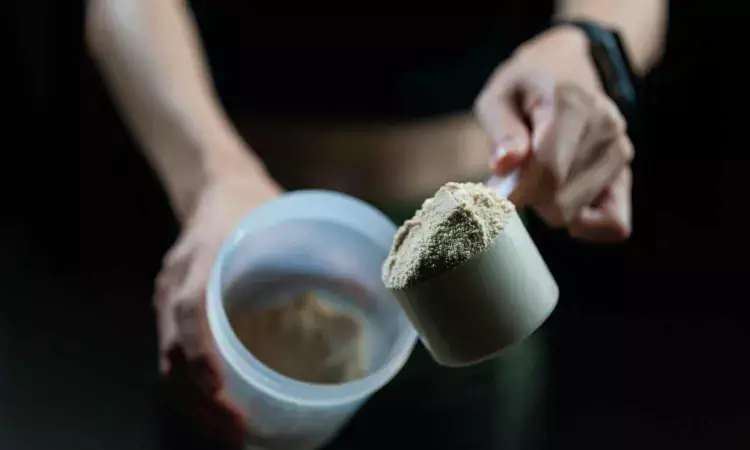- Home
- Medical news & Guidelines
- Anesthesiology
- Cardiology and CTVS
- Critical Care
- Dentistry
- Dermatology
- Diabetes and Endocrinology
- ENT
- Gastroenterology
- Medicine
- Nephrology
- Neurology
- Obstretics-Gynaecology
- Oncology
- Ophthalmology
- Orthopaedics
- Pediatrics-Neonatology
- Psychiatry
- Pulmonology
- Radiology
- Surgery
- Urology
- Laboratory Medicine
- Diet
- Nursing
- Paramedical
- Physiotherapy
- Health news
- Fact Check
- Bone Health Fact Check
- Brain Health Fact Check
- Cancer Related Fact Check
- Child Care Fact Check
- Dental and oral health fact check
- Diabetes and metabolic health fact check
- Diet and Nutrition Fact Check
- Eye and ENT Care Fact Check
- Fitness fact check
- Gut health fact check
- Heart health fact check
- Kidney health fact check
- Medical education fact check
- Men's health fact check
- Respiratory fact check
- Skin and hair care fact check
- Vaccine and Immunization fact check
- Women's health fact check
- AYUSH
- State News
- Andaman and Nicobar Islands
- Andhra Pradesh
- Arunachal Pradesh
- Assam
- Bihar
- Chandigarh
- Chattisgarh
- Dadra and Nagar Haveli
- Daman and Diu
- Delhi
- Goa
- Gujarat
- Haryana
- Himachal Pradesh
- Jammu & Kashmir
- Jharkhand
- Karnataka
- Kerala
- Ladakh
- Lakshadweep
- Madhya Pradesh
- Maharashtra
- Manipur
- Meghalaya
- Mizoram
- Nagaland
- Odisha
- Puducherry
- Punjab
- Rajasthan
- Sikkim
- Tamil Nadu
- Telangana
- Tripura
- Uttar Pradesh
- Uttrakhand
- West Bengal
- Medical Education
- Industry
Protein Powder Supplement Linked To Cancer, reveals research

A new warning linking regular protein shake consumption to an increased risk of colon cancer is raising concerns, particularly as new data reveals the widespread use of protein supplements among teenagers. A recent poll from the National Poll on Children's Health found that approximately two in five parents report their teenager has consumed protein supplements – including powders, bars, and shakes – within the past year, with teen boys using them more regularly than teen girls. Many parents reported their teens used these supplements for muscle gain and improved athletic performance. This comes amidst an alarming 80% global surge in colon cancer diagnoses among young people over the past three decades.
While factors such as pollution, obesity, and microplastics have been suggested as contributing factors to this rise, new research suggests protein powders may also play a role.
“The metabolism of proteins produces toxins that can drive inflammation in the bowel, a known risk factor for colon cancer. Furthermore, protein powders can disrupt the gut microbiome, leading to further inflammation and the release of toxins, which can increase the risk of DNA damage in cells – a critical step in cancer development” says, Dr. Rosario Ligresti at Hackensack University Medical Center.
This story is highly relevant given the growing popularity of protein powders and the concerning rise in colon cancer cases among young adults. Experts from Hackensack Meridian Health are available to discuss:
- The specific toxins produced during protein metabolism and their impact on the gut.
- The connection between gut microbiome disruption, inflammation, and colon cancer.
- Recommendations for safer protein consumption and alternative strategies for muscle building, particularly for teenagers.
- The broader context of rising colon cancer rates in young people and the various contributing factors.
- The implications of widespread teen protein supplement use and potential long-term health consequences.
Dr Kamal Kant Kohli-MBBS, DTCD- a chest specialist with more than 30 years of practice and a flair for writing clinical articles, Dr Kamal Kant Kohli joined Medical Dialogues as a Chief Editor of Medical News. Besides writing articles, as an editor, he proofreads and verifies all the medical content published on Medical Dialogues including those coming from journals, studies,medical conferences,guidelines etc. Email: drkohli@medicaldialogues.in. Contact no. 011-43720751


